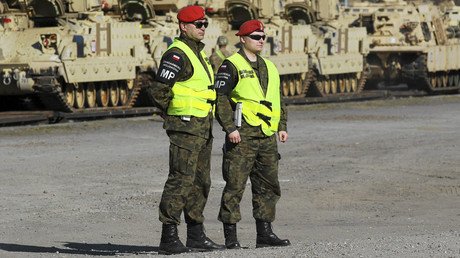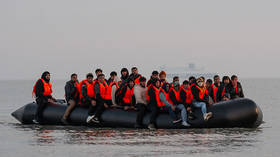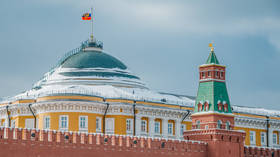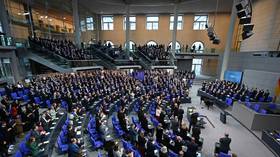'Coup' against EU? Poland accused of trampling democracy after new law on top court
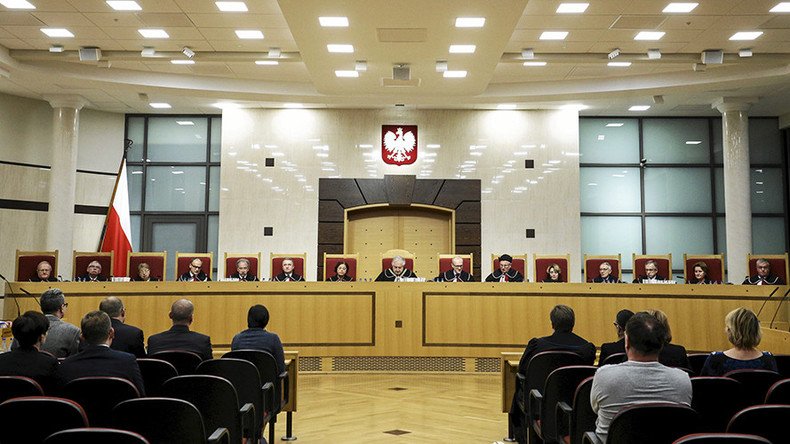
Poland's ruling Law and Justice party has passed a controversial law that regulates the country's highest judicial body. Critics deem the move to take control of the Constitutional Tribunal as an attack on an independent judiciary.
With the Law and Justice party (PiS) in control of both houses of parliament, the law passed with 235 votes for and 181 against late on Tuesday. Once approved by the upper chamber and the president, it will immediately come into force.
The amendment will require the 15-member Constitutional Court to pass most of its rulings with two-thirds of votes, rather than the current simple majority, and will require at least 13 judges to be present, as opposed to the nine previously needed.
#zKODpodSejm
#zKODnaGwiazdkę
@Kom_Obr_Dempic.twitter.com/XH1SRJf9x0
— Aleksandra Zawisza (@AleksZawisza) 19 декабря 2015
Critics say the new amendment will be make it next to impossible for the court to reach valid rulings on controversial issues and to block disputed legislation.
"We lawyers and citizens watching this believe the main idea is to tie the hands of the judges so they cannot react in a timely manner," Katarzyna Szymielewicz, an activist with the pro-democracy We Are Watching You initiative, told AP.
READ MORE: Polish govt tears a strip off EU Parliament head for calling Warsaw crisis a 'coup'
The Polish Supreme Court criticized the latest amendment in a statement sent to parliament last week, arguing that it was aimed at "hampering or preventing the Tribunal from performing its duties.”
"The systemic position of the Tribunal is one of the few guarantees preventing a dictate of the majority," it said.
The law introduces obligatory waits of three to six months between the time a request for a ruling is made and a verdict, compared with two weeks currently. This "presages huge potential delays and, in fact, the paralysis [of the court],” the Supreme Court added.
Growing criticism from EU
Luxembourg's Foreign Minister Jean Asselborn (whose country holds the rotating EU presidency) told Germany's ZDF television on Monday that developments in Poland were "frightening."
He said that the Polish government seems to have no clue "that we are a community of values, that we not only can intervene but must intervene if things are going the wrong way in terms of the rule of law."
Despite an avalanche of criticism, earlier this month lawmakers from the PiS, run by Jaroslaw Kaczynski, installed five judges of its own choosing at the 15-member court (also called the Constitutional Tribunal), refusing to recognize judges appointed by the previous parliament when the liberal Civic Platform (PO) party was in power. The PiS alleged the appointments made by the previous government at the very end of its term made the court “biased.”
The Euroskeptic conservative government has repeatedly denied all accusations, claiming it needs to gain control over the country’s institutions for Poland to strengthen and equalize its social system and economy. After Poland’s parliamentary elections, which were held in October, the Law and Justice party gained a majority in both houses of parliament, with Polish President Andrzej Duda also a staunch supporter of the new government.
Last week thousands of people joined demonstrations in more than 20 cities across Poland to protest against what many see as the government’s attempts to gain full control of the Constitutional Court. A protest in front of the parliament building in Warsaw was attended by about 20,000 Poles, Reuters reported, citing city officials. The protesters, waving Polish and EU flags, chanted “Stop destroying democracy!” and “We will defend democracy, constitution and Constitutional Court!”
Opponents have also criticized the speed with which the parliament rushed to back the legislation.
"Rushing is an inherent part of a banana republic," Killion Munyama, a Zambian-born lawmaker with the Civic Platform party, noted on Tuesday.
Earlier this month EU Parliament chief Martin Schulz was in hot water for comparing the current political situation in Poland to a "coup d'etat." Warsaw demanded an apology for what it deemed “unfounded, unjustified” comments.
Eyebrows were further raised last week when the new Polish authorities sent military police on an overnight visit to the NATO Counter Intelligence Center of Excellence in Warsaw to “enforce the replacement of the center’s head.”
Defense Ministry spokesman Bartlomiej Misiewicz explained the move by saying the head of the training center, Colonel Krzysztof Dusza, had failed to fulfill a dismissal order the previous week. The reshuffle was needed as the employees of the center weren’t supported by the Polish government, Deputy Defense Minister Bartosz Kownacki told RMF radio.
The NATO Counter Intelligence Center of Excellence was organized by Poland and Slovakia last year to gather and analyze intelligence on the Ukrainian crisis and international terrorism.
